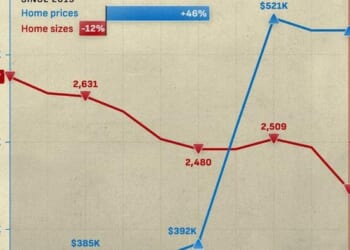
Let’s back up for a moment to emphasize something important: Human nature is real. Indeed, I wrote a whole book on the challenge of human nature, so it would be weird for me to deny it here. Human nature is the source of all worldly corruption. I do not mean corruption solely in the sense of taking bribes or stealing from petty cash. I mean corruption in the older, more biblical sense, of turning away from ideals and principles in service to baser desires. All of the seven deadly sins are simply aspects of human nature. What are lust, gluttony, greed, sloth, wrath, envy, and pride if not a handy checklist of the reasons man is fallen, and not angels?
Scratch that. “Men and women are fallen” and “… why men and women are not angels.”
I am normally pretty comfortable with the use of “men” or “mankind” to describe all humans, regardless of sex. But this is one of these moments that makes me want to quote a very old bumper sticker: “Feminism is the radical notion that women are people.”
I’m not sure this insight is the sole provenance of bumper-sticker feminism, but the point is right. Women are people, too. And women are not immune to sin any more than men are—though I might be convinced they are slightly less prone to sin than men. But let’s avoid that rabbit hole. Suffice it to say that “All have sinned and fall short of the glory of God” (Romans 3:23) is right.
Which gets me to one of the weird things about Andrews’ essay. Male nature is taken to be an unalloyed good, the bedrock foundation upon which the tallest spires of Western Civilization rest. But female nature? It’s catty, unserious, censorious, and oh so bitchy.
But surely there are good things about femininity and bad things about masculinity?
I mean, I could swear I read about some bad things that happened when men were in charge. I’m not going to run through all the examples (any A-to-Z list could run at book length). So let’s just say from the Albigensian Crusade to the Dzungar genocide, men have done some bad stuff. Including canceling people.
Andrews doesn’t quite say that “all cancellations are feminine”; that “cancel culture is simply what women do whenever there are enough of them in a given organization or field”; or that “everything you think of as ‘wokeness’ is simply an epiphenomenon of demographic feminization.” Rather she credits these claims to another author and then says:
The explanatory power of this simple thesis was incredible. It really did unlock the secrets of the era we are living in. Wokeness is not a new ideology, an outgrowth of Marxism, or a result of post-Obama disillusionment. It is simply feminine patterns of behavior applied to institutions where women were few in number until recently. How did I not see it before?
So, if she doesn’t fully agree with those claims, she has a funny way of disagreeing with them. Andrews is right about one thing, the thesis is simple. Way too simple.
If all cancellations are feminine, how do we explain the McCarthy era and blacklists? Or the Inquisition? How to understand Milan Kundera’s The Joke? Or Arthur Koestler’s Darkness at Noon? Or the life of Aleksandr Solzhenitsyn? How about Athenian ostracism or Roman proscription? Isn’t the death of Socrates sort of the great cancellation that gets the ball rolling? What does that say about Western Civilization from the get-go?
America under Woodrow Wilson was a festival of cancellations and thought-and-speech policing. The German language was largely purged from cultural life. Members of the Industrial Workers of the World (AKA the Wobblies) were literally tarred and feathered. Magazines were banned and shuttered, dissenters were thrown in jail or shot in the street, professors lost their jobs for questioning the war. I bring this up with some trepidation, because I find it difficult to hit the brakes once I start talking about Wilson. But I think it’s worth it, just to note that all of this pretty much petered out when women got the vote. I don’t want to over-egg the causation there, because there’s not too much of it. But if chicks are always responsible for cancellations, the timing is at least inconvenient.
China’s Cultural Revolution involved a lot of cancellations—including at the hands of some pretty hardcore Chinese proto-Karens (Bian Zhongyun, the first educator murdered in Beijing during the Cultural Revolution, was tortured and beaten to death by some decidedly un-nurturing female students at a girls’ middle school). But I don’t think the Cultural Revolution was about the mass feminization of China, or Mao’s Communist Party. It had more to do with the mobilization of populist youth than mobilization of serious mom energy.
If none of the above counts as cancellations or woke-style ideological ensorcellment, then one has to explain to me why the lesser forms of cancellation in the last 10 years are not only worse, but also uniquely threatening to civilization when my examples weren’t.
But none of this detracts necessarily from the softer, and humbler, version of Andrews’ claims. I think it’s true that if you have a large number of women in an institution, the character of that institution will change. Sometimes it will change for the better, sometimes it will change for the worse. And sometimes it will just be different. Indeed, in my experience men often behave better around women. But occasionally the presence of women makes men, especially young men, behave worse, because men often want to compete with other men to impress the women.
Surely the fact that women, as a statistical generalization, are less violent, more nurturing, more collaborative, and, I dunno, less interested in promiscuity and pornography than men amount to points in their favor. Indeed, if the regulation of female shortcomings had been the primary job of civilizing institutions instead of constraining male shortcomings over the last 10,000 years, we might have stumbled into something like a civilized world a bit earlier than we did. Hobbes’ Leviathan is mostly necessary to keep men from killing each other, not women.
Which is all to say that it’s just a lot more complicated than Andrews makes it out to be.
Civilization—Western or any other—didn’t burst forth from the brows of men instantaneously, back in the good old days when women were consigned to the cave, hut, or castle. It’s been a slog. Regulating the male tendency toward violence and cruelty—not to mention those seven sins—was a work in progress for millennia prior to anyone using the phrase “Western Civilization.” And the slog continues.
The real problem.
Anyway, I have a different theory about where cancellations and wokeness come from. But before I offer it, I want to concede that it doesn’t have the all-purpose “explanatory power” Andrews ascribes to mass feminization, because I don’t believe in all-purpose explanations for anything, save the aforementioned point that human nature is the root of all of our problems to one extent or another. But human nature is an indispensable part of the solution to those problems as well. Which is another way of saying incentives matter. If every human truly believed that hell is real and that murder is wrong, there’d be a lot less murder because avoiding eternal damnation is a powerful incentive. If every human, male or female, believed that God was watching them at all times—and keeping score—there’d still be sin, but there’d be less of it.
Then again, a lot of people committed murder and indulged in many other lesser sins while believing in heaven and hell, which is just proof that humans can screw things up, convince themselves of terrible things, or otherwise surrender to the worst aspects of human nature.
Which brings me to my perhaps unsurprising explanation for much of what we’ve seen over the last few decades. It’s not mass feminization, it’s just the masses. In The Revolt of the Masses—which came out in 1930, long before the era of mass feminization—José Ortega y Gasset wrote, “The mass is all which sets no value on itself—good or ill—based on specific grounds, but which feels itself ‘just like everything’ … The mass crushes beneath it everything which is different, everything that is excellent, individual, qualified and select. Anybody who is not like everybody, who does not think like everybody, runs the risk of being eliminated.”
That sounds a lot like cancel culture to me.
Both right and left, men and women, are surrendering to the temptations of the mob, or to be more specific, competing mobs. The defining features of populism are merely the politicization of mobbish passion.
And that passion is rooted in human nature and profoundly seductive. Those features are a form of worldly false transcendence. The sense of power and belonging that comes from mobs is, and always has been, one of the most seductive and sinful facets of human nature. One of its most seductive qualities is that it doesn’t feel like a mob, it feels righteous. We swim like schools of fish in an ocean of righteous conformity and can’t tell that we’re wet. Nuremberg rallies were not feminine, but if you don’t think Nazism had its own poisonous versions of cancel culture and wokeness, you’re a fool or a good prospect to be a guest on Tucker Carlson’s show.
Andrews’ examples of eruptions of cancel culture and wokeness—Bari Weiss vilification by the New York Times, the auto-da-fé of economist Larry Summers, the performative arrogance of public health experts during the COVID pandemic—fit her mass feminization thesis, precisely because she cherry-picked examples that fit her thesis.
But there have been plenty of cancellations, and plenty of wokeness, where women or “feminization” seem incidental to the story. Milo Yiannopoulos was a famous victim of cancel culture—according to his defenders (I was one of the many men denouncing his CPAC invitation, though I can assure you it wasn’t just for the thrill of joining a mob and I certainly wasn’t just surfing the estrogen tide). His comments about homosexual ephebophilia and his defense of neo-Nazis were what got his invitation to CPAC rescinded in 2017. Other less clear-cut controversies come to mind. A censorious mob went after Spotify for Joe Rogan’s excessive use of the n-word. The country music group the Dixie Chicks pissed off a whole bunch of manly patriotic men with their comments before the invasion of Iraq. Former NFL quarterback Colin Kaepernick enraged a lot of Americans, particularly football fans, for kneeling during the National Anthem. The backlash didn’t feel particularly feminine to me. Nor did the “freedom fry” frenzy.
Yes, we live in an unprecedented moment of female participation in politics, the workforce, etc. We also live in a populist moment of mob politics. So, it’s no surprise that some mobs take on more of a feminine valence. And some mobs take on a racial flavor, because black participation in American life is also greater than ever. Some mobs are antisemitic. Some are anti-immigrant. Some are anti-billionaire.
I think the so–called “woke right” is real.
I’m even willing to entertain the idea that it is partially the result of the mass feminization Andrews is so worried about. But the woke right is decidedly male-flavored. The rise in prominence and popularity of toxic male jackasses like Andrew Tate and incel Nazis like Nick Fuentes has something to do with the changing role of women in society. Men of weak or deformed character are intimidated or put off by self-confident women. So they retreat to comfortable caricatures of manliness. Even decent and well-adjusted men struggle with the idea of making less money than women, because men are wired to want to be providers. The problem is compounded because women are wired to desire good providers (again I’m trafficking in gross stereotypes). But as much explanatory power as the changing role of women has to this story, I think it takes a backseat to the breakdown of families and the absence of fathers. Which is to say it’s all complicated.
The seduction of the mob is always there. But for obvious reasons the pull is most strongly felt for those who are not rooted; it is hardest to resist the tide when you are not tied down. The term “cancel culture” is modern. (Like so many aspects of Americana, its origins—just like “woke”—are in black culture). It originated as a real-life variant of canceling a TV show, but now we cancel people as if they are a show or brand. It took off in the age of social media, because social media is designed to exploit the hunger for mobs. Joining an online feeding frenzy is a bit like jumping on an old San Francisco trolley: Wait a minute or two and one will just show up in front of you. And for those who want to lead a mob—for fun or profit—social media makes it easier than ever to put on your conductor’s hat and ring the bell for passengers.

















